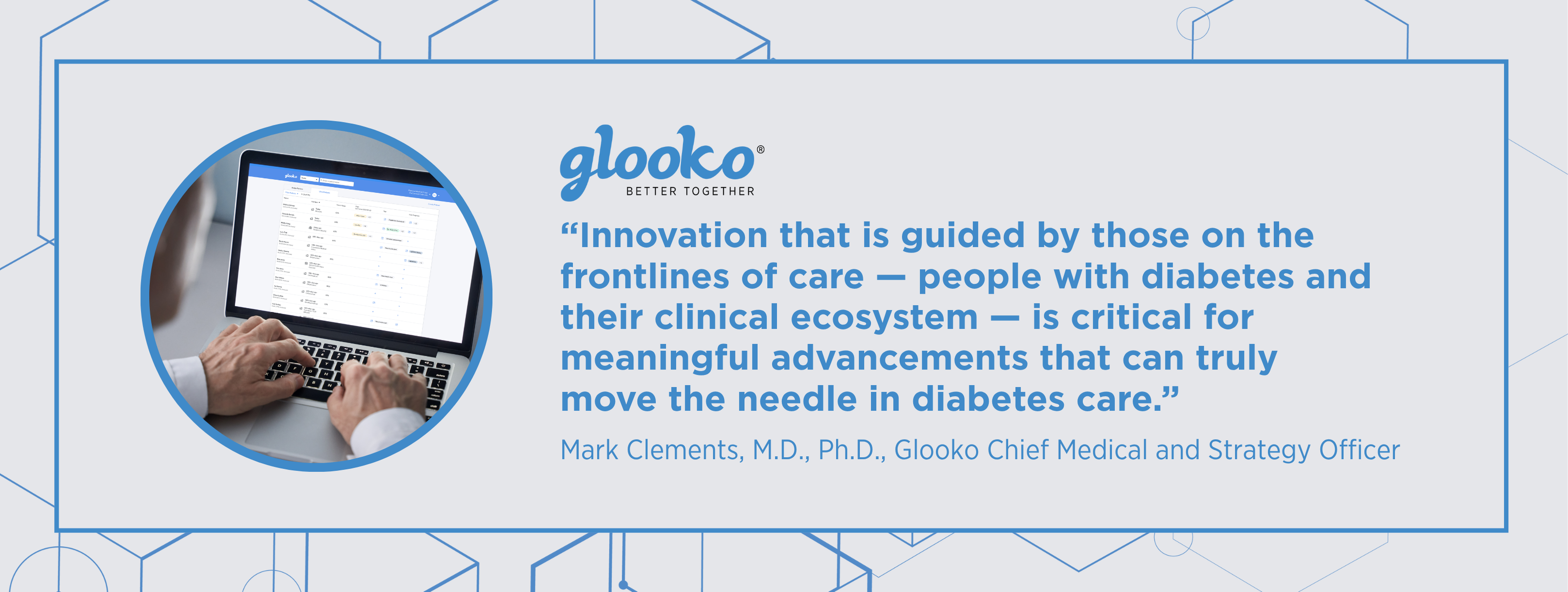

As healthcare providers, we find ourselves at a pivotal moment in diabetes management. Technological advances — from remote patient monitoring to artificial intelligence — have dramatically reshaped patient care. Yet, amid these innovations, a crucial element often remains overlooked: the voices of clinicians and people with diabetes.
In my new expanded role as Chief Medical and Strategy Officer at Glooko, I am excited about the opportunity to transition from direct patient care into a broader role where I can continue to make a significant impact on diabetes management and improve the lives of people with diabetes. I believe my firsthand clinical experience positions me uniquely to guide Glooko’s innovation efforts, ensuring we build tools that genuinely meet the needs of clinicians and people with diabetes alike.
In my nearly two decades as a pediatric endocrinologist, I’ve observed the profound potential—and the challenges—of integrating digital solutions into daily diabetes management. Clinicians routinely manage a complex array of tasks: reviewing glucose data from continuous glucose monitors (CGMs) or meters, adjusting insulin regimens, coaching patients on lifestyle, documenting clinical decisions, and coordinating across care teams. With a single person’s CGM device generating up to 288 data points per day, 1 clinicians managing numerous people with diabetes face overwhelming workloads.
Individuals with diabetes echo similar concerns. Many describe data fatigue from constant management and analysis of their glucose levels. As one person stated, „The data is overwhelming; without clear insights and simpler ways to interpret it, it’s just noise.“
Although this wealth of data is invaluable, it contributes significantly to clinician burnout, and burn out among people with diabetes. Alarmingly, half to two-thirds of clinicians experience burnout, driven largely by bureaucratic tasks, extended working hours, and the sheer volume of data management.2,3
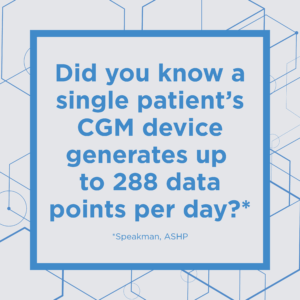
Individuals with diabetes also report significant stress from managing their condition daily. Every glucose reading can feel like a pass or fail test. Effective technological integration could alleviate such emotional burdens by making data actionable, intuitive, and less intrusive.
At Glooko, we recognize that technology alone is not sufficient—it must seamlessly integrate into clinician workflows. Clinicians offer essential insights into behaviors of individuals, adherence barriers, and preferences. Unfortunately, many digital diabetes solutions miss the mark due to inadequate clinician input, leading to underutilization—only about 40% see active clinical use.4 Glooko addresses this by ensuring clinician insights directly shape our technology, streamlining workflow integration through interoperability with electronic health records (EHRs).
In a similar vein, simplicity and intuitive user experiences are paramount for people with diabetes to properly leverage diabetes management technologies. If the technology is complicated, it just becomes another barrier.
Today, our connected care platform exemplifies this integrated approach, merging patient-generated data with clinical decision-making tools. Evidence demonstrates connected care significantly improves diabetes outcomes, with reductions in HbA1c levels of up to 1.5% and fewer hypoglycemic events.5 Glooko enables clinicians to swiftly identify high-risk trends and proactively manage care for people with diabetes.
Tomorrow, AI-driven predictive analytics within Glooko could transform diabetes management by forecasting hypoglycemic and hyperglycemic events, facilitating timely, preventive interventions. Automating routine data analysis tasks can reduce clinicians’ documentation burdens by approximately 30%,6,7 significantly alleviating stress and freeing clinicians to focus more deeply on clinical interactions. For people with diabetes, this can provide a significant improvement in their overall diabetes management.
I believe Glooko has immense potential, especially through advanced analytics and decision support. For instance, we could empower clinicians to shift from generalized treatment plans to highly personalized management strategies, grounded in timely data.
Innovation that is guided by those on the frontlines of care — people with diabetes and their care providers — is critical for meaningful advancements that can truly move the needle in diabetes care. In my role, I am dedicated to ensuring our solutions enhance workflows, support better outcomes, and ultimately bring a human-centric approach to diabetes management.
Together, we will define the future of diabetes care, directly addressing challenges clinicians face and improving the lives of those we treat. Here’s to a bright future ahead!
1. Speakman, ASHP. 2. Hammes et al., Endocrine News; Medscape Endocrinologist Lifestyle Report, 2022. 3. Batta et al., BMJ Open Diabetes Res Care. 4. Shah et al., J. Diabetes Sci Technol., 2023.5. Su et al., J. Med Internet Res., 2023. 6. AMA Digital Health Report. 7. Sidharthan et al., Scientific Reports, 2025.
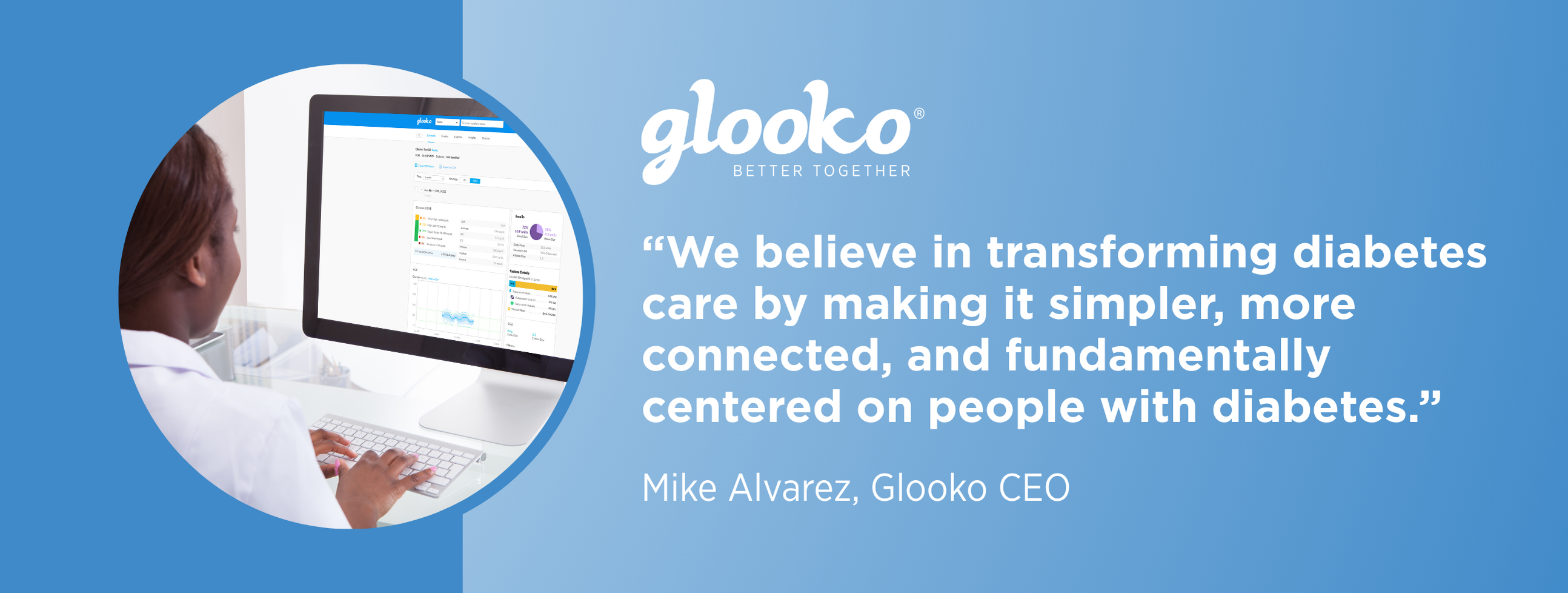
 Over the past several months since stepping into the role of CEO at Glooko, I’ve been reflecting on the incredible progress we’ve made, and the immense opportunities that lie ahead. Each day has reaffirmed my belief that our mission to transform diabetes care is both urgent and achievable. I’m more energized than ever to guide Glooko toward a future where we deliver an even greater impact for people with diabetes and those who care for them.
Over the past several months since stepping into the role of CEO at Glooko, I’ve been reflecting on the incredible progress we’ve made, and the immense opportunities that lie ahead. Each day has reaffirmed my belief that our mission to transform diabetes care is both urgent and achievable. I’m more energized than ever to guide Glooko toward a future where we deliver an even greater impact for people with diabetes and those who care for them.
When I think about the future of diabetes care, one word comes to mind: transformation. Across the globe, health systems, clinicians, and people living with diabetes are looking for a holistic approach, one that brings together cutting-edge technology, patient-centric insights, and secure, scalable solutions. At Glooko, we’ve made it our mission to deliver exactly that.
Our Vision: Transforming Diabetes Care
We believe in transforming diabetes care by making it simpler, more connected, and fundamentally centered on people with diabetes. This vision underpins every decision we make, whether we’re enhancing our platform’s EHR integration, partnering with global device manufacturers, or expanding our footprint in new markets.
Our Mission: Simplifying Care and Strengthening Connections
At Glooko, we say: “We simplify care, strengthen connections, and together create a brighter future for people living with diabetes, healthcare providers, and caregivers.”
Simplify Care
We hear time and again about fragmented workflows and siloed data, forcing providers and patients to juggle multiple device platforms (mobile and web), apps, and logins. Our platform intends to change this, meaning clinicians can potentially spend less time on administrative tasks and more time where they’re needed most: caring for patients and focused on improving outcomes.
Strengthen Connections
We also see the power of community and shared decision-making. Through Glooko, patients, caregivers, and healthcare teams can collaborate more effectively, share real-time data, and gain insights that drive meaningful change in care plans. We aim to reduce the cognitive burden of diabetes data and decision making.
In my view, these are the five biggest differentiators that make Glooko stand out:
- Patient First Mindset: Everything we do revolves around putting patients first. We collaborate closely with clinicians, caregivers, and people living with diabetes to ensure our technology meets real-world needs.
- Commitment to Quality and Security: From ISO 27001 to HiTrust and SOC 2 Type 2 certifications, our platform is backed by enterprise-grade security and rigorously tested reliability. We understand that healthcare data is precious and that trust is earned through quality.
- Innovation That Matters: Our platform is more than a “data upload tool.” It’s an engine designed to support clinical decision making. Whether it’s EHR interoperability or automated patient nudges, we constantly push boundaries to develop meaningful solutions that scale globally.
- High-Performance Culture: Within the company, we’re building a talented, global team that challenges the status quo. This energy fuels our drive to expand into new markets, partner with industry leaders, and improve access to diabetes care around the world.
- Better Together: Collaboration is in our DNA, and that includes partnerships with device manufacturers, healthcare providers and hospital systems. By joining forces with stakeholders across the healthcare ecosystem, we have the opportunity to create value that benefits everyone, especially people living with diabetes.
Scaling for the Future
Our work has already touched millions of lives, but we’re just getting started. With rising rates of diabetes worldwide, the need for an integrated, secure, and human-centered solution has never been greater. That’s why we’re investing in global expansion, forging new alliances, and refining our platform to make sense of the high volume of data in diabetes care.
Scaling effectively also means staying true to our roots. Our commitment to patient outcomes, uncompromising quality, and secure innovation will remain the bedrock of Glooko’s growth. As we continue to expand, our North Star will always be the same: transforming diabetes care on a global scale and making diabetes easier to manage for everyone in the diabetes care ecosystem.
A Commitment to People Living with Diabetes, Above All
Behind every data point or device upload is a person managing a complex, life-altering condition. We never lose sight of that human element. As Glooko grows, our Patients First value continues to guide us toward solutions that truly make a difference, reducing clinical burdens, improving outcomes, and helping people with diabetes live fuller, healthier lives.
MKT-0532 01
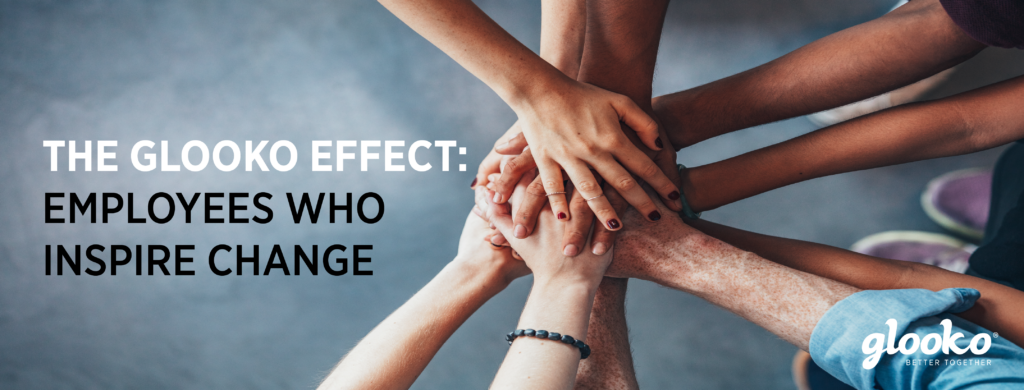
As we continue our celebration of Diabetes Awareness Month, we want to highlight the amazing work being done by the passionate individuals at Glooko who are dedicated to improving the lives of people living with diabetes. Today, we’re excited to share a glimpse into the work of Nele Peters, a key member of our team whose contributions help shape our platform to better support those managing diabetes.

“When I first started at Glooko, I was in contact daily with people living with diabetes. Hearing their stories and feedback made Glooko’s mission feel personal—it became my mission as well. The time I spent speaking directly with users has been incredibly rewarding. Listening to how they use Glooko and how it helps them, fueled my passion for our work,” says Nele. “As Glooko’s Product Specialist, I see how we not only listen to our users but take their stories and feedback seriously, striving to implement their insights into our product to create meaningful improvements.
“I’m incredibly proud to work alongside a team that is so committed to improving the daily experience of people living with diabetes,” says Nele. “What excites me the most is how Glooko doesn’t just provide a product—it fosters a community that listens, learns, and continually strives to do better.”
One of Nele’s favorite features is the upcoming launch of our Glooko Resource Center, which was designed with healthcare providers in mind. This feature allows clinicians to directly access help articles and connect with our customer support team within the Glooko® Web App, streamlining their ability to offer timely support to patients. For Nele, this innovation represents a meaningful step forward in improving the collaboration between healthcare professionals and individuals living with diabetes. “By providing quick access to educational materials and support, clinicians can make the most of their time with patients, ensuring that individuals with diabetes get the guidance they need in real-time.”
Nele is involved in onboarding new team members and introducing them to the vision behind Glooko’s work. One of her favorite parts of the job is sharing the company’s mission with new employees and helping them understand how their role contributes to improving the lives of people managing diabetes.
“There’s something truly special about seeing new team members light up when they realize the impact their work will have on the diabetes community,” Nele says. “It’s a reminder that our work is bigger than just products—we’re making a real difference in people’s lives.”
Nele’s story is a powerful reminder that, through collaboration and continuous improvement, we can make a lasting impact on the lives of those managing diabetes.
MKT-0523 01

November is Diabetes Awareness Month, a time to reflect on the impact of diabetes on millions of people worldwide and to raise awareness about how we can improve care, outcomes, and quality of life for those living with the condition. At Glooko, we are deeply committed to this mission. Every day, our team works tirelessly to create innovative tools and solutions that empower people with diabetes and their healthcare providers to make informed, life-changing decisions.

We spoke with key members of our team who are at the forefront of developing these transformative solutions. Their passion, expertise, and personal commitment to improving diabetes care shine through in their work, and we’re excited to share their perspectives on how we’re shaping the future of diabetes management.
Matteo Carli, Senior Director of Product at Glooko, shares our core mission: „Our goal is to bridge the gap between data and actionable care, simplifying diabetes management and enabling more personalized, proactive care.“ A key area of passion for Matteo is our Population Health tools, which help healthcare teams proactively identify high-risk patients and deliver preventive care at scale, improving outcomes across communities.
„What motivates me most is the belief that every improvement we make to the Glooko platform brings us closer to empowering people with diabetes and their care teams to achieve healthier, more fulfilling lives,“ Matteo adds. „With each step forward, we’re not just refining a tool—we’re shaping a future where diabetes care is more connected, personalized, and transformative for everyone involved.“
For Amanda Martin, Director of Product Design and a person with Type 1 Diabetes, the mission is personal: “I have the privilege of creating solutions that empower people with diabetes and the providers who care for them. As a person with Type 1 Diabetes, I love being part of a team dedicated to making meaningful experiences for patients to improve their care and transform their lives.” Amanda’s unique perspective drives her commitment to designing tools that improve daily diabetes management. „I love how our team brings together passion, empathy, and innovation to create experiences that truly make a difference for those with diabetes.“
This Diabetes Awareness Month, we renew our commitment to reshaping the future of diabetes care—empowering patients, supporting providers, and improving lives.
MKT-0504 01

As I begin my new role as CEO of Glooko, I’m filled with both excitement and a deep sense of responsibility. Diabetes management has always been a deeply personal and complex journey for so many individuals, and the opportunity to lead a company dedicated to easing that burden is truly inspiring. This is more than just a new chapter for me; it’s a chance to make a real difference in the lives of people living with chronic conditions.
With the $100 million Series F financing, Glooko is in a strong position to accelerate our mission—simplifying diabetes management for patients, clinicians, and their care teams. As someone who has spent the majority of my career in healthcare technology and chronic condition management, I’m particularly excited to lead a company that is committed to easing the burden for patients with diabetes and their care teams. I’ve seen firsthand how data—while crucial—can become overwhelming, especially for those managing a condition like diabetes that requires constant monitoring. Whether it’s managing blood glucose levels, using insulin pumps, or trying to make sense of data from multiple apps, patients and clinicians are often left navigating a complex web of information. Particularly for physicians, sifting through and trying to make sense of that same sea of data to provide timely, effective care can be a daunting task.
At Glooko, we’re focused on tackling these challenges head-on. Our platform has the potential to provide actionable insights that streamline the management of chronic diseases like diabetes. We aim to simplify workflows, so that endocrinologists and diabetes care teams can focus on what matters most—to develop early intervention and care pathways that improve patient outcomes. We are also focused on expanding our work with our life sciences partners to enable clinical research and improve outcomes.
Our goal is clear: to make diabetes management easier for everyone—patients, clinicians, and partners. With the recent funding, we’re able to invest further in expanding our platform to support even more customers and to strengthen our integrations with electronic medical records (EMRs). This not only helps clinicians manage their workloads more effectively but also improves care coordination across the board.
I couldn’t be more excited to lead Glooko through this next phase of growth. We are at the forefront of changing how chronic diseases are managed by leveraging data to create new care pathways that make a real difference in patients‘ lives. The possibilities for what we can achieve together are limitless, and I’m eager to work with our incredible team to bring these innovations to life.
This moment marks the beginning of an exciting journey, and I’m confident that, together, we’ll continue to set new standards for chronic condition management—making it easier, more efficient, and more effective for all.

This summer, we have interns across various functions at Glooko who are working in administrative and technical positions. Through their rewarding roles, they’re making an impact at our digital health company and helping us better our connected care technologies that improve the lives of people with diabetes and related chronic conditions.
Meet our summer interns and hear about their experiences at Glooko.
SUMMER INTERNS
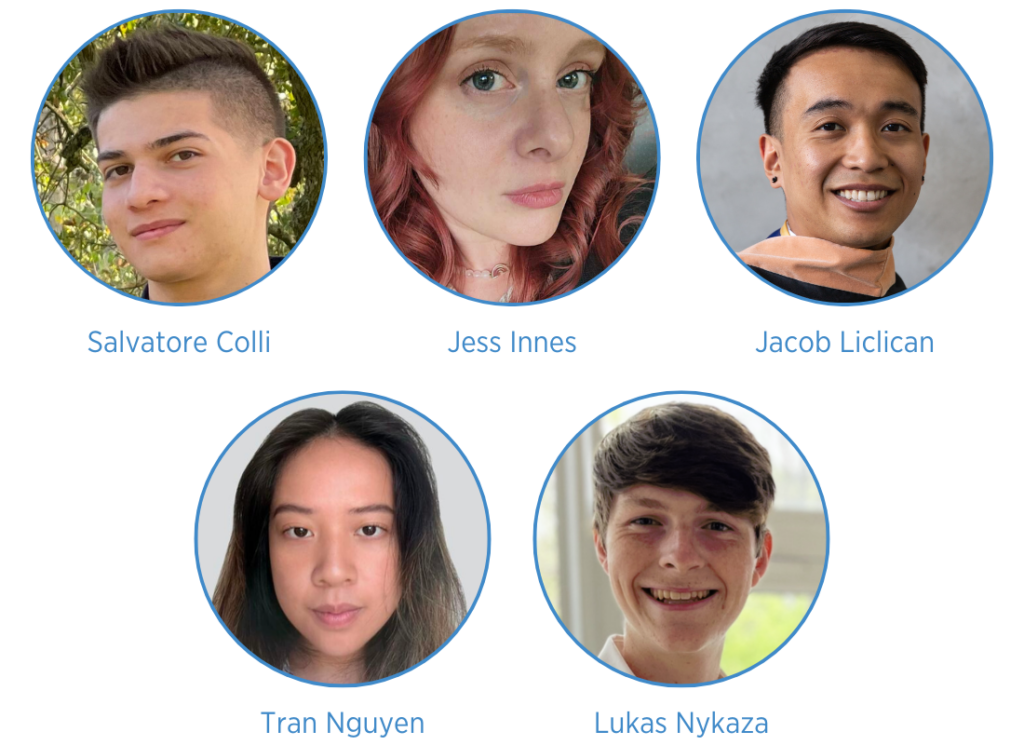 Based in California, Salvatore Colli, a supply chain major and senior at Rutgers University-New Brunswick, is working on the corporate finance team on projects aligned with sales. He’s using his knowledge to help guide global data and reporting projects around contracts, lead and accounts within Salesforce. He’s found that Glooko has helped prepare him for his future career in a variety of ways, including perfecting multitasking, getting a better grasp of industry software platforms and learning how to better communicate and be organized. His favorite part of interning has been connecting with his colleagues, who are always insightful, professional and have a sense of humor.
Based in California, Salvatore Colli, a supply chain major and senior at Rutgers University-New Brunswick, is working on the corporate finance team on projects aligned with sales. He’s using his knowledge to help guide global data and reporting projects around contracts, lead and accounts within Salesforce. He’s found that Glooko has helped prepare him for his future career in a variety of ways, including perfecting multitasking, getting a better grasp of industry software platforms and learning how to better communicate and be organized. His favorite part of interning has been connecting with his colleagues, who are always insightful, professional and have a sense of humor.
Hailing from Connecticut, Jess Innes, a senior at Southern New Hampshire University, is working on our cybersecurity team. Her projects this summer have included audits, policy revisions and security alerts. Through her work, she believes Glooko is helping prepare her for her future career in cybersecurity. She’s found her team to be very enjoyable while working remotely and getting closer to completing her major in cybersecurity.
Jacob Liclican, a recent graduate from University of San Francisco with a major in marketing, joined our human resources team for the summer. He’s working meticulously on maintaining HR Information Systems (HRIS) records and learning more about databases each day. While Glooko has been teaching him the responsibilities and tasks associated within various departments to prepare him for his future career, he’s also had the opportunity to meet many of his colleagues in-person and virtually who he’s found to be very welcoming and supportive.
Tran Nguyen, a Connecticut-based senior at Southern New Hampshire University majoring in information technology, is spending her summer on our IT operations team. During her experience, she has been able to gain working knowledge of various softwares and processes, audits and policy revisions, while managing multiple help desk tickets from employees. She found her tasks this summer to be very interesting and her teammates to be quite helpful.
In our product management department, Lukas Nykaza, a student at Mahomet-Seymour High School in Illinois, is helping document the activation workflows of the recently redesigned Glooko® Mobile App. At our connected care company this summer, he’s learning if product and data management could be a future career. He’s enjoying the flexibility that Glooko provides to their interns and the opportunity to gain knowledge that he will be able to put to future use.
We’re thankful for all the contributions of our interns this summer!
Interested in furthering your career at Glooko? Explore open roles around the world.
MKT-0483 01

In honor of American Diabetes Month, we’re sharing stories of Team Glooko members who are living with diabetes or helping a family member who is impacted by the chronic condition.
On September 11, 2001, Phil Krieg, the global head of customer support and supply chain for Glooko, was diagnosed with type 1 diabetes.
While he’s only been at our connected care company for two years, he had always wanted to work at Glooko and was passionate about joining to further our mission since he’s been a long-time user of our app.
In his role, he works directly with people with diabetes and in many situations, the parents of children with diabetes, to help solve their issues. In these moments, it can be an especially scary time for parents.
“Empathy is key in my position,” said Phil. “I work closely with the users I’m supporting to work through any problems they’re facing as quickly and efficiently as possible.”
Leading the support team from California, he’s able to easily collect and share feedback from customers on the design of Glooko with the product development team, who is always willing to take new ideas and work them into fruition to further enhance the connected care solution.
And as one of the many people on Team Glooko living with diabetes who uses the mobile app on a daily basis, his mission-driven nature goes into the product design as well.
“I’m always looking for ways to improve our app and make it better for users, like myself,” said Phil.
Hear his story.
MKT-0407 03
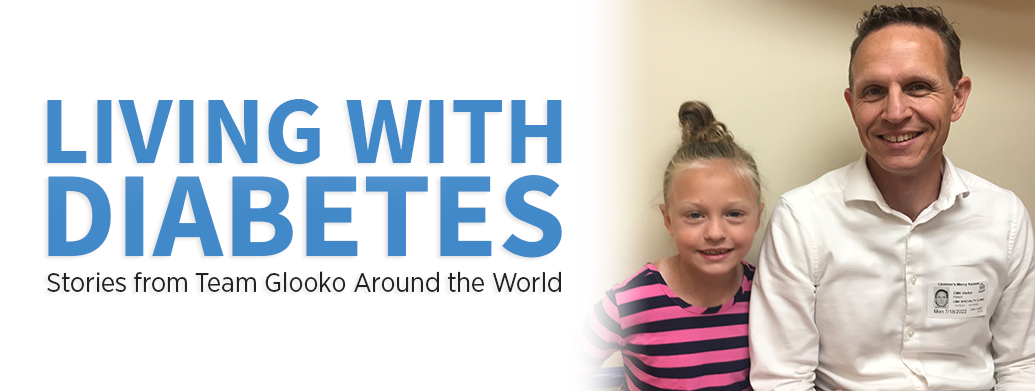
In honor of American Diabetes Month, we’re sharing stories of Team Glooko members who are living with diabetes or helping a family member who is impacted by the chronic condition.
As a senior account manager at Glooko for the past 2.5 years, Patrick Watkins has helped hospital systems, healthcare providers and clinics maximize their functionality and take full advantage of what our digital health platform has to offer their patients with diabetes and related chronic conditions.
While Patrick himself isn’t living with diabetes, his daughter, Nuala, has been living with type 1 diabetes for over six years. Through the use of a closed loop system, the Glooko app and telehealth appointments, Patrick and his wife keep Nuala safe and healthy like any other child.
The duo, who act as JDRF ambassadors, are also dedicated to ensuring that other families know that their child, newly diagnosed with diabetes, will lead a healthy life and acclimate to living with the condition.
In Patrick’s role at our connected care company, he’s able to understand what his customers are faced with from both the patient and caregiver perspective due to his experiences at home. He’s also able to synthesize the various needs of providers, people with diabetes and caregivers to our product development team and ensure the best experience for all users of our app and platform.
“I really appreciate working at Glooko and being among so many people with diabetes,” said Patrick. “It’s a special place since so many people have the insights from using the app in their daily lives, so they’re constantly able to help build an even better product.”
Listen to his story.
MKT-0407 02
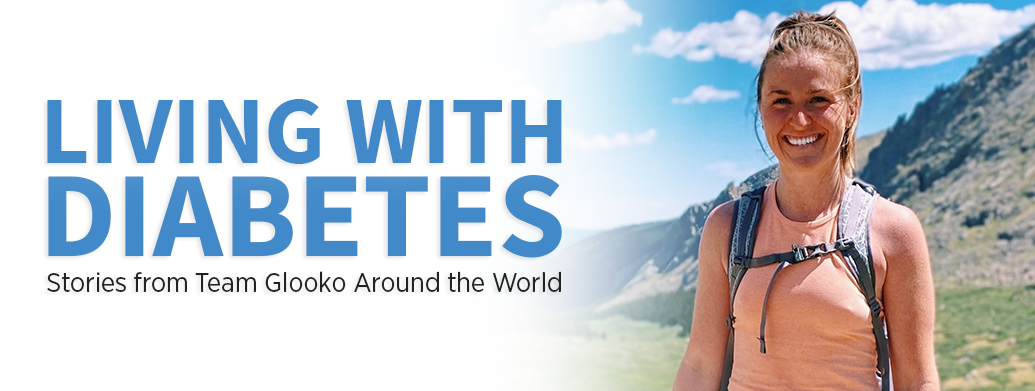
In honor of American Diabetes Month, we’re sharing stories of Team Glooko members who are living with diabetes or helping a family member who is impacted by the chronic condition.
Hadley Horton, a partner manager at Glooko, was diagnosed with type 1 diabetes in November of 2009.
When she’s not staying active to keep her blood sugar stabilized, she acts as an advocate for people with diabetes. She believes those with diabetes understand and are aware what it means to live with the condition best. In the past, she’s mentored youth with diabetes and their peers to remind them they’ll lead a normal life just like she has.
Based in Denver, Colorado, her role at our connected care company allows her to collaborate with teams across Glooko and our partner, Insulet, on how to expand and improve our digital health platform.
“In order to have a successful partnership, you need to work with everyone from product developers to patients,” said Hadley. “My role has given me a new perspective into the digital therapeutics space, as well as understanding of the broader diabetes industry.”
With her knowledge from working alongside partner companies, living with diabetes and using the Omnipod 5 in her daily life, she’s able to lend valuable insights into the continuous development of the Glooko app to enhance our product for users around the world.
Listen to her story.
MKT-0407 01
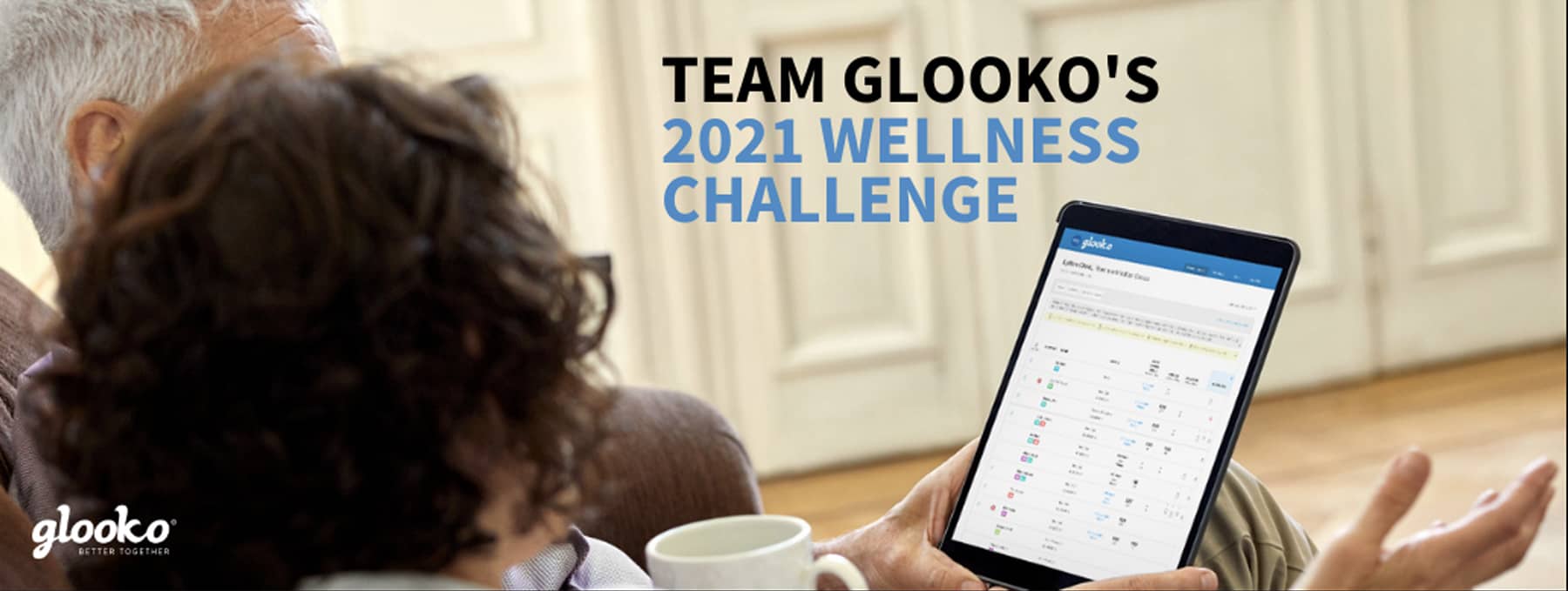
To further our commitment to our community of patients with diabetes, clinical researchers and healthcare providers, Glooko is holding a Wellness Challenge for Team Glooko October 4 to 10, 2021, and we want you to get involved.
Our Wellness Challenge, which leads up to the 30th anniversary of the American Diabetes Association’s virtual Tour de Cure on October 10, will provide you with daily wellness tips and encourage you to improve your health through the Glooko app.
We also invite you to join Team Glooko on the Tour de Cure. With your support and a $30,000 fundraising match from Glooko, we’ll help the ADA continue to provide community-based education programs, protect the rights of people with diabetes and fund critical research for a cure. If you’re interested, register and fundraise, or support our fundraising efforts by donating here.
October 4: Activate your Glooko App
Let’s start the Wellness Challenge by highlighting the importance of creating a comprehensive data picture, containing everything from your blood glucose readings to exercise activity. Begin by downloading and installing the Glooko app, available on the Google Play Store and App Store. After installing the app on your mobile device, create a Glooko account if you don’t already have one and then sync the Glooko app with compatible CGMs, blood glucose meters and fitness and health apps.
October 5: Track your Food Intake
Tracking food intake is vital when monitoring your health. Luckily, food intake can be tracked very easily with the Glooko app, where you can see how different foods affect blood glucose readings. For today’s challenge, we encourage you to add what you consume manually, via the barcode scanner or using voice capture to your Glooko app.
October 6: Track your Weight and Medications and Take the ADA’s Diabetes Risk Test
Did you know the Glooko mobile app can be used to track weight, blood pressure, A1c, exercise, insulin and medication? These lifestyle events can be viewed alongside glucose data to reveal trends and patterns, which can help healthcare providers uncover conditions like prediabetes. For today’s challenge, track your weight and medications in the Glooko app and take 60 seconds to complete the ADA’s Type-2 Diabetes Risk Test.
October 7: Set Reminders
Everyone has busy days which can make it hard to remember when to take medication or blood glucose readings. Luckily, you can set-up reminders within the Glooko app and you’ll be alerted to actions you need to take. For today’s challenge, set a reminder or two in your Glooko app.
October 8: Uncover Health Insights
Glooko’s web app can be used for monitoring your blood glucose readings, Bolus and Basal rates, nutrition and more. For today’s challenge, log in to the web app, see what insights you uncover and use the data to get better control of your health.
October 9: Track your Fitness and Get Active
Daily fitness activity is very important for your overall health, and the Glooko app makes it easy to track your steps and fitness data manually or with compatible third party vendors. For today’s challenge, we encourage you to take 10,000 steps or take part in 30 minutes of moderate activity. Once you’re done, check in the Glooko app how your exercise impacted your blood glucose readings.
October 10: Build Community and Support Tour de Cure
At Glooko, we’re dedicated to collaboration, which we use to develop and strengthen our relationships within the diabetes ecosystem and improve health outcomes of patients with diabetes. Every year, Glooko participates in the Tour de Cure, supporting the ADA’s efforts funding research to take steps closer to a cure and provide resources to healthcare professionals and over 34 million Americans living with diabetes. For today’s challenge, tune in to the live stream of the 30th Anniversary Tour de Cure, a program we proudly support, and share on social media how Glooko, and this week’s Wellness Challenge, has helped you improve your health.
We hope you’ve enjoyed our Wellness Challenge! Explore the Glooko app for more ways to help you track your health data and make more informed decisions about your health.
